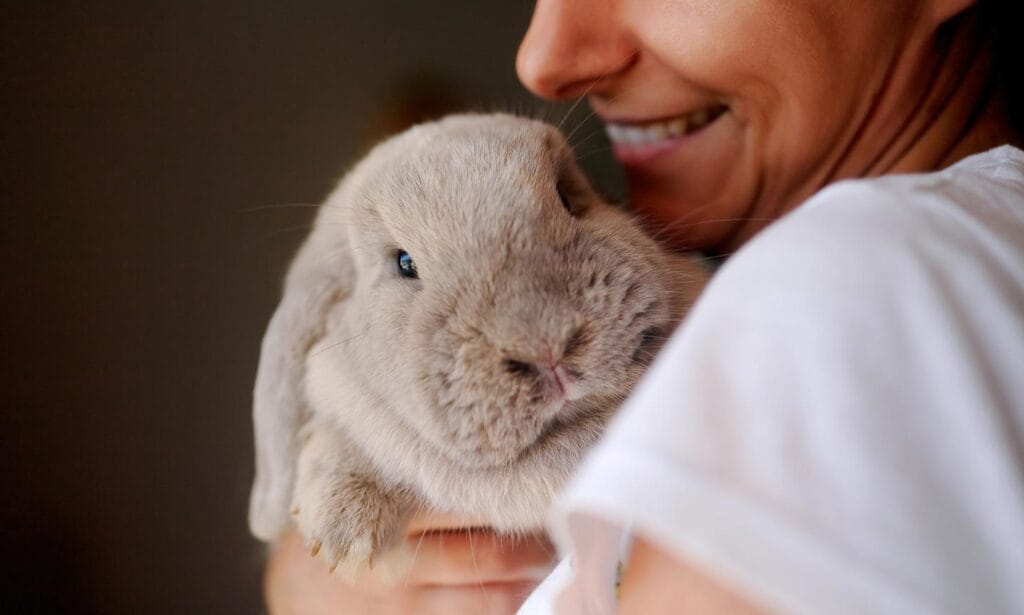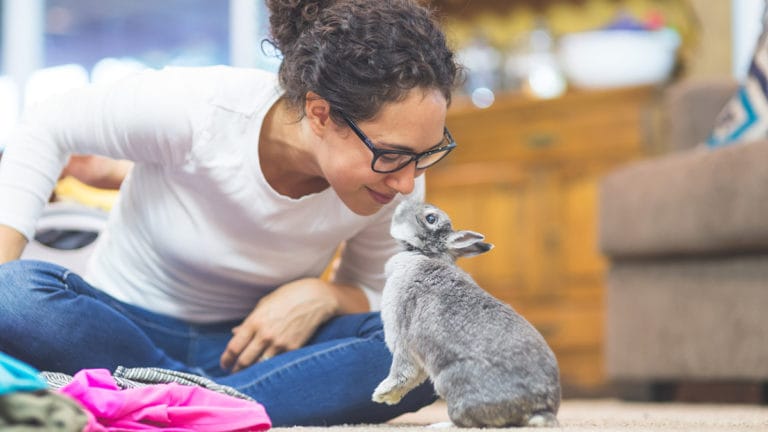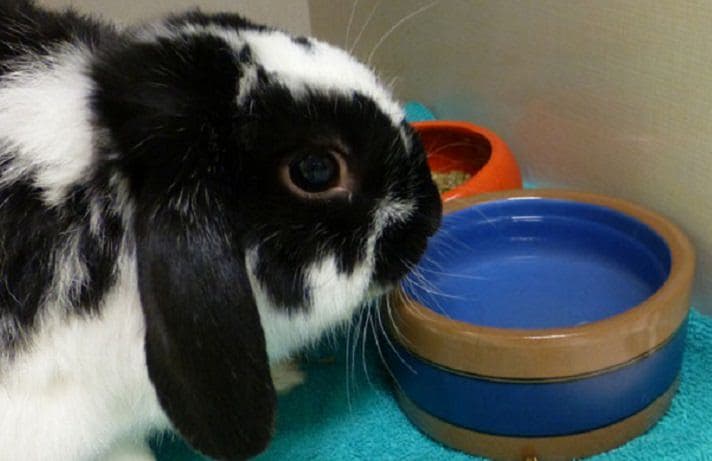How Long Do Rabbits Live?
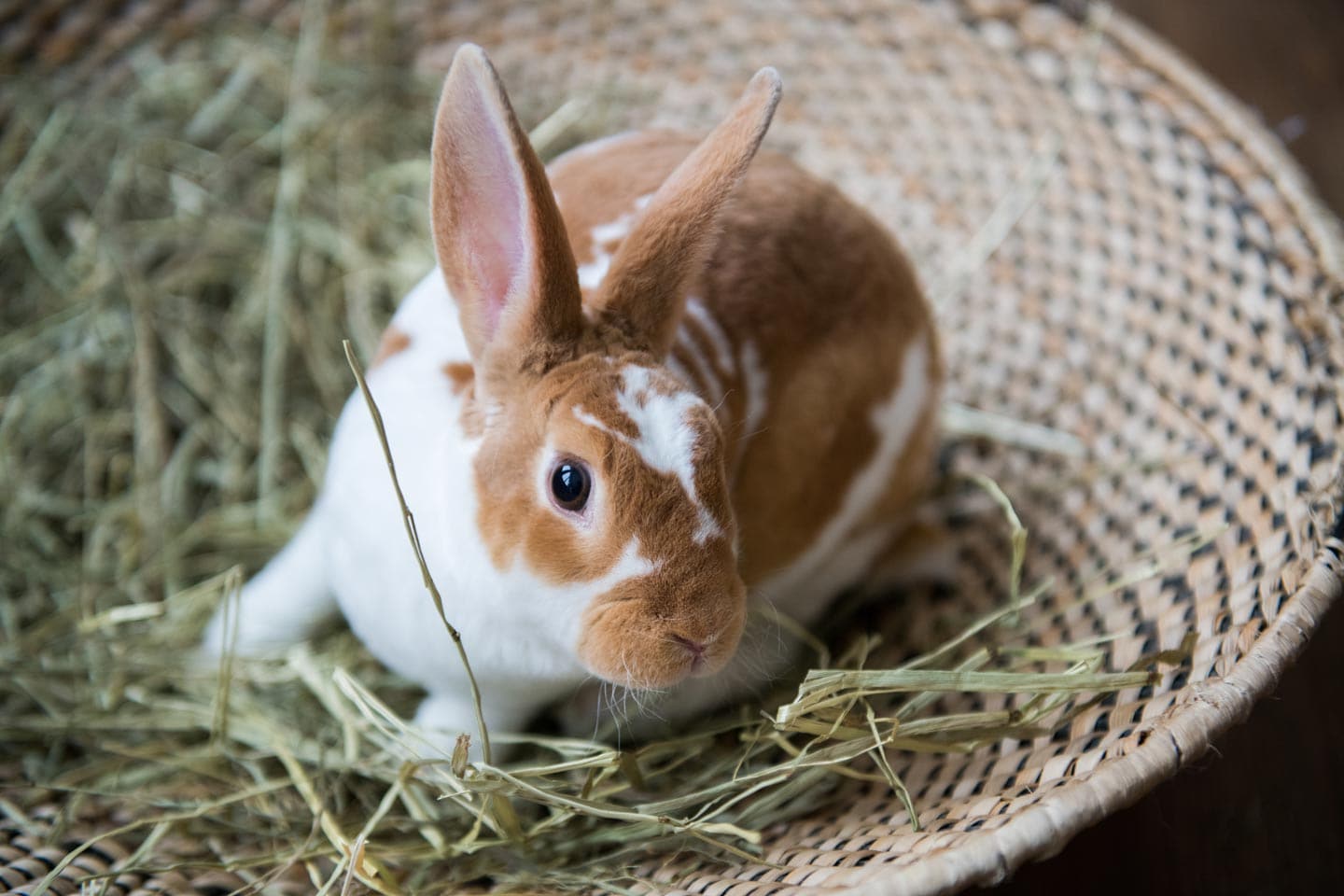
The lifespans of pet rabbits and wild rabbits are very different.
- A typical domestic rabbit will live between 8 and 12 years with proper care.
- Wild rabbits have a much shorter life—anywhere between 1 and 9 years.
Why the difference? Because in the wild, rabbits are a prey species. They’re constantly dealing with predators and the stress of being hunted, which can lead to health problems. Proper rabbit care by a pet parent, on the other hand, can extend their life greatly.
According to Susan Borders, DVM, a veterinarian who works with Ohio House Rabbit Rescue in Columbus, Ohio, female bunnies who are not spayed have a significantly shorter average lifespan than those who are spayed. That’s because they’re at a much higher risk of developing uterine cancer. Sadly, this cancer spreads to other areas of the body and can dramatically shorten their lifespan.
The size of your rabbit may also affect their longevity. Rae Porter-Blackwell, DVM, a veterinarian at the Center for Bird and Exotic Animal Medicine in Bothell, Washington, who treats small pets, including bunnies, explains that smaller breeds of rabbits tend to live longer than larger breeds of rabbits.
Bunnies who grow bigger, like Flemish Giant rabbits, may develop arthritis or other mobility issues that affect their quality of life. However, even small dwarf-breed rabbits can have health issues such as dental disease, which may affect their lifespan.
7 Tips To Increase Your Bunny’s Longevity
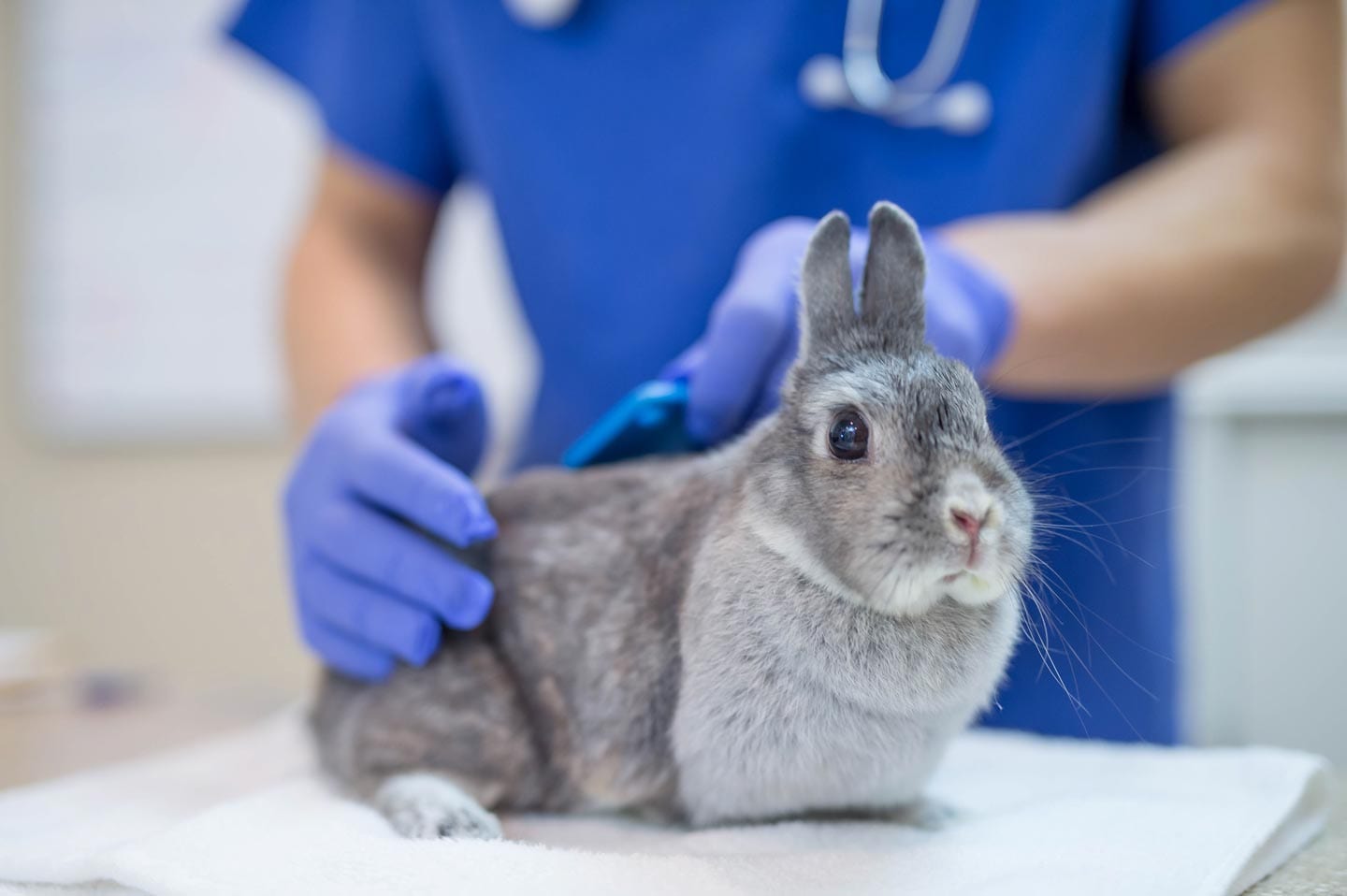
A rabbit’s lifespan depends in large part on the quality of care they receive from their pet parent. Here are some helpful hints for increasing the life expectancy of your bunny.
1Schedule Regular Checkups
Caring for a bunny is very different from having a cat or dog. That’s why Drs. Borders and Porter-Blackwell recommend seeking a veterinarian with experience in rabbit health. You can typically find healthcare referrals through a local rabbit rescue group or the Rabbit.Org Foundation.
Young rabbits need to come in for regular checkups only once a year. However, you should take them at least twice a year after the age of 6. You may need to see your vet more often if your bunny has a chronic illness.
2Provide a Balanced Diet
If you’ve ever seen a Bugs Bunny® cartoon, you may think your rabbit would like nothing more than to crunch on carrots all day. But bunny diets are much more complex. “Carrots and fruit tend to be really high in sugar and can have a negative impact on their GI tract,” says Dr. Porter-Blackwell.
Your rabbit needs a healthy diet that’s primarily grass hay, which should be offered in abundance at all times, along with salads as treats. Salads should only make up about 5% of their diet.
If your bunny only eats pellets, they’re at a higher risk for developing dental disease as well as obesity. The way rabbits chew pellets, as opposed to hay, does not wear down their teeth, which can result in overgrown teeth.
Hay is crucial for a rabbit’s dental health and overall well-being. It helps wear down their teeth naturally, preventing them from becoming overgrown, which can lead to serious issues. The fiber in hay also aids in digestion, keeps their gut healthy, and actively moves food down the digestive tract.
3Spay or Neuter Your Rabbit
Rabbits who are spayed tend to live longer than rabbits who are not. According to Dr. Porter-Blackwell, female rabbits are particularly susceptible to developing reproductive cancers (ovarian, mammary, or uterine cancers). In fact, up to 90% of female rabbits over the age of 2 1/2 develop reproductive cancers that will dramatically shorten their lifespan. Female rabbits can be spayed between 3 and 6 months of age.
Dr. Borders stresses that male rabbits should be neutered between 3 and 6 months old, mainly for behavioral reasons. The procedure can help with litter box training too. Rabbits can also get aggressive when they reach (sexual) maturity, and neutering helps address that issue. Working with a veterinarian who is familiar with rabbits to alter your bun is recommended.
4Provide a Healthy Environment
If you’ve ever been to a pet store and seen small rabbit cages and hutches, you might think bunnies like living in tiny spaces—but that’s not true. Dr. Borders recommends keeping your rabbit in at least a 4-foot by 4-foot area so they have enough room to move around and stay busy. While a traditional rabbit hutch can be fine for short periods of time, a larger space is better for your bunny’s overall well-being.
Ensuring your rabbit’s home is well-ventilated and can easily be cleaned can also keep them healthy.
Proper rabbit handling is essential for their safety when moving to different enclosures. Practicing with your vet team or rescue group can help you become more comfortable and ensure their safe/secure movement.
Many rabbit parents set up a portable play yard for their rabbits, which can allow your active bunny to get in exercise time. You can put their litter box inside too, and still give them some room to stretch out. If your bunny pen is on a hard surface, Dr. Porter-Blackwell says putting down some soft padding, like an exercise mat, is important. That’s because rabbits don’t have pads on their feet for protection, and can get sore hocks from walking around on hard surfaces all day. Additionally, their feet can also be damaged if they are left to sit or walk on the wire bottom of their cage for too long. Providing a solid, comfortable surface helps protect their feet and keep them healthy and happy overall.
Some bunny parents allow their pets to roam freely around their house or apartment. If you plan to do this, you must rabbit-proof your home. Bunnies can be destructive—they love to chew baseboards and pull up carpeting. They can also seriously injure themselves (and your equipment!) by chewing on unsafe objects like electrical cords, which can happen in a split-second. It’s best to supervise your bunny anytime they’re outside of their hutch or playpen.
5Allow Room for Exercise
Rabbits need to spend most of their time being active. If your rabbit is confined to a cage all day, they won’t get enough daily exercise, so allowing space for moving around is essential. If you let your rabbit out in the open, you may see them doing “zoomies” as they run laps around the room. They also do an adorable twisting jump in the air called a “binky.”
6Offer Plenty of Enrichment Activities
Like cats and dogs, rabbits enjoy playing with toys. Enrichment toys made of willow bark are safe for rabbits to play with. Dr. Porter-Blackwell also recommends plastic toys like stacking cups or plastic keys. Be sure to watch your bunny to make sure they aren’t inappropriately chewing up the plastic.
Puzzle feeder toys can also provide more mental stimulation at mealtimes. In the wild, rabbits spend most of their time foraging for food, so it’s good to use enrichment toys to help them build and exercise those skills.
Dr. Borders likes products your bunny can chew on, such as toys made of cardboard, apple twigs, willow, compressed hay, or timothy hay. She doesn’t recommend toys with seeds, corn, or alfalfa because they promote obesity or are high in calcium.
Bunnies are big chewers, so giving them toys and enrichment activities is important. “Otherwise, they’ll start chewing on your furniture. You gotta keep their brain busy,” says Dr. Borders.
7Help Your Rabbit Socialize
Studies of animal behavior can help us understand how our pets see us socially. “Dogs view us as other dogs. Cats view us as bigger cats. Bunnies view us as predators but tolerate us,” says Dr. Porter-Blackwell. That doesn’t mean rabbits can’t form close relationships with their people—it just takes a slow and steady process built on respect and consent.
Rabbits form very close bonds with other bunnies, especially those of the opposite sex. In fact, some studies indicate overall rabbit welfare improves when rabbits live in pairs. According to Dr. Porter-Blackwell, rabbits clean and groom each other’s ears. They also get upset when one bunny goes away, for example, to visit the veterinarian.
But that doesn’t mean any two rabbits will form a fast friendship. If two rabbits don’t like each other, they can get very violent and may fight to the point where one or both of them is seriously injured. That’s why, if you’re considering adding a friend for your pet rabbit, both Drs. Borders and Porter-Blackwell recommend that you contact a rescue organization that specializes in bunny matchmaking. There, rabbits can meet other rabbits to see if they have the potential to bond and become lifelong best buns!
By understanding rabbits’ unique needs and providing them with the best care, you can ensure your furry companion enjoys a long, happy life.
This content was medically reviewed by Chewy vets.
Caring For Your Rabbit
Share:
